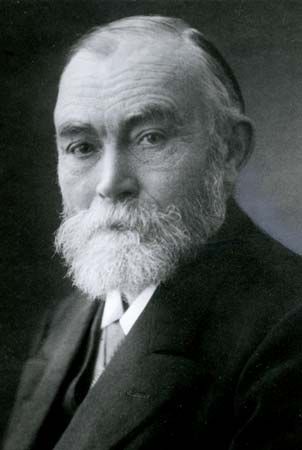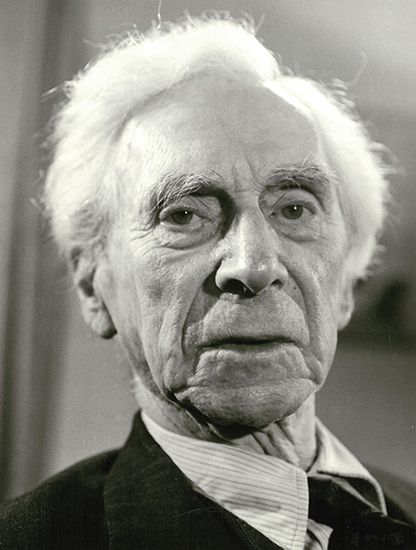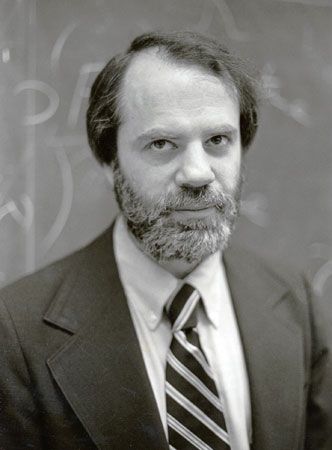Frege’s revolution
Our editors will review what you’ve submitted and determine whether to revise the article.
- Related Topics:
- linguistics
- language
- philosophy
According to Locke, ideas exist independently of words, which serve merely as their vehicles. Locke’s emphasis on individual words, as well as the foundational role he assigned to psychology, were attacked by the German logician Gottlob Frege (1848–1925), who is generally regarded as the father of modern philosophy of language. Primarily a mathematician, Frege’s interest in language developed as a result of his attempt to devise a logical notation adequate for the formalization of mathematical reasoning. As a part of this effort, he invented not only modern mathematical logic but also a groundbreaking philosophical theory of meaning. The fundamental notion of this theory is that the meaning of a sentence—the “thought” it expresses—is a function of its structure, or syntax. The thought, in turn, is determined not by the psychological state of the speaker or hearer—thoughts are not “mental” entities—but by the logical inferences the sentence permits. Sentence meaning, furthermore, is prior to word meaning, in the sense that the meanings of individual words are determined only by what they contribute to the thoughts expressed by the sentences in which the words appear. (This idea had in fact been anticipated by the English philosopher Jeremy Bentham [1748–1832].) Frege’s theory of sentence meaning explains how it is possible for different people to grasp the same thought—such as The North Sea covers an area of 220,000 square miles—though no two people associate the corresponding sentence with exactly the same ideas, images, or other mental experiences.
An enormously influential element of Frege’s theory of meaning was his distinction between the referent (Bedeutung) of an expression—the thing it refers to—and its sense (Sinn). The sense of an expression is both its contribution to the thought expressed by the sentence and the “mode of presentation” of its referent. By means of this distinction, Frege was able to show how there can be informative statements of identity. The sentence Everest is Chomolungma, for example, is informative—it may even represent a geographic discovery—whereas the sentence Everest is Everest is not. Yet they appear to have the same meaning—both seem to say, of one and the same mountain, that it is identical to itself. How, then, can one sentence be informative and the other trivial? Frege’s answer is that, whereas Everest and Chomolungma (the Tibetan name) have the same referent, they have different senses: they “present” the mountain in different ways. The distinct senses accordingly make different contributions to the thoughts expressed by the two sentences.
In Frege’s logic, sentences and singular terms are “complete” or “saturated” expressions, and predicates are incomplete or unsaturated expressions. Predicates are functions, analogous to the functions of mathematics; thus, …is a lecturer and …loves… are analogous to …× 4 (…multiplied by 4). The result of applying the predicate …× 4 to the numeral 3 is an expression, 12, whose referent is the number obtained when 3 is multiplied by 4. Similarly, the result of attaching the predicate …is a lecturer to the name John is a sentence, John is a lecturer, whose value is True if John is a lecturer and False otherwise, likewise the result of attaching …loves… to John and Mary. In a logical analysis of a sentence, the various predicate-functions are isolated, and the truth-value of the whole is seen to be determined by the outputs of these functions. Frege also treated sentential connectives, such as and and not, as functions producing new truth-values when applied to other sentences as arguments.
The heart of Frege’s logical revolution was his treatment of the key notion of generality. Before Frege, for example, there was no logical analysis of sentences such as Everyone has a mother that did not license invalid inferences to sentences such as Someone is everyone’s mother. By using the notion of a “second-order” function—a function that takes other functions as arguments—Frege was able to give such an account. Thereafter, second-order functions became a ubiquitous feature of modern logic and semantic analysis.
Frege’s hostility to psychological accounts of meaning led him to regard thoughts and senses as abstract objects akin to Platonic Forms. Here, however, modern philosophers have been reluctant to follow him, not only because this “third world” of abstract objects is extremely mysterious in itself but also because it seems impossible to account for how users of language manage to come into contact with it. Indeed, it is not clear how such contact, however it is conceived, could count as thinking, since thinking is an activity that takes place in connection with the world of concrete things.



















